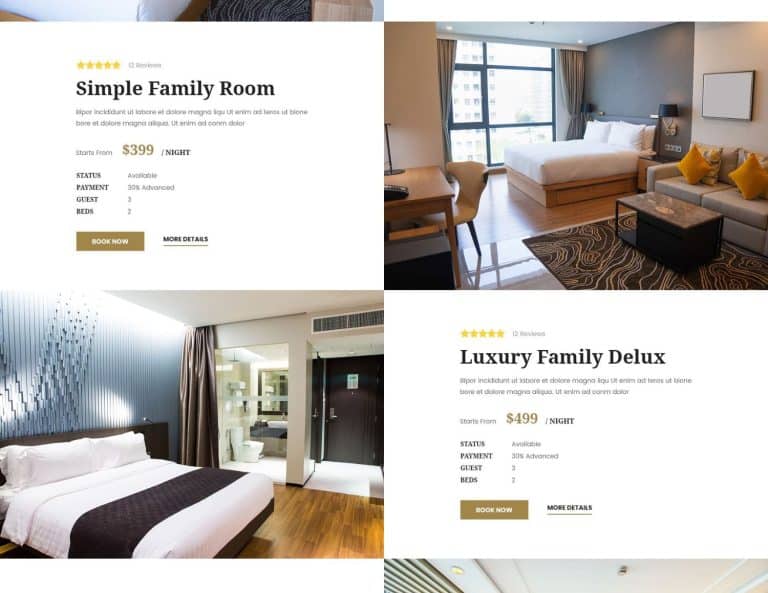Discover the key factors that determine when a hotel guest becomes a tenant in Massachusetts.
If you’re short on time, here’s a quick answer to your question: A hotel guest becomes a tenant in Massachusetts when they occupy a hotel room for more than 30 consecutive days.
In this article, we’ll explore the legal framework in Massachusetts that defines the transition from hotel guest to tenant. We’ll discuss the criteria, rights, and obligations that come into play, ensuring you have a comprehensive understanding of the topic.
Understanding the Legal Distinction
When you check into a hotel, you may not think twice about the legal implications of your stay. However, in Massachusetts, there is a fine line between being a hotel guest and becoming a tenant. Understanding this legal distinction is crucial for both hotel guests and property owners, as it determines the rights and obligations of each party involved.
Hotel Guests vs. Tenants
So, when does a hotel guest become a tenant in Massachusetts? The answer lies in the duration of the stay. Generally, if a person occupies a hotel room for less than 30 consecutive days, they are considered a hotel guest. Hotel guests are granted certain rights and protections under Massachusetts law, but these are not as extensive as those given to tenants.
On the other hand, if a person occupies a hotel room for more than 30 consecutive days, they are typically considered a tenant. This distinction is important because tenants have additional legal rights and obligations that hotel guests do not possess.
Hotel Guest Rights and Obligations
As a hotel guest in Massachusetts, you have the right to a safe and clean living environment. The hotel is responsible for ensuring that the room meets certain standards of hygiene and safety. Additionally, you have the right to privacy and can expect that your personal belongings will be secure during your stay.
However, as a hotel guest, you also have certain obligations. These include paying the agreed-upon rate for your stay, respecting the hotel’s rules and regulations, and not causing any damage to the property. Failure to meet these obligations may result in additional fees or even eviction from the hotel.
Tenant Rights and Obligations
Once you cross the threshold of a 30-day stay in a hotel room in Massachusetts, you become a tenant. This means that you are entitled to additional legal protections, such as the right to a habitable living space and the right to proper notice before eviction.
As a tenant, you also have certain obligations. These include paying rent on time, properly maintaining the property, and adhering to the terms of your lease agreement. Failure to meet these obligations may result in legal consequences, such as eviction or fines.
It is important to note that the distinction between hotel guests and tenants in Massachusetts can have significant legal implications for both parties involved. Therefore, if you find yourself in a situation where your status may be in question, it is advisable to seek legal advice to fully understand your rights and obligations.
The 30-Day Rule
When it comes to determining whether a hotel guest becomes a tenant in Massachusetts, the 30-day rule plays a crucial role. This rule is based on the definition of ‘occupying’ a hotel room and the consecutive days of occupancy. Understanding these factors is important for both hotel guests and operators to navigate the legal implications of extended stays.
Definition of ‘Occupying’
In Massachusetts, the term ‘occupying’ refers to more than just physically being present in a hotel room. According to the law, a guest is considered to be occupying a hotel room when they have established it as their primary residence. This means that the guest has stayed in the same room for a continuous period of time and has received mail or listed the hotel address as their official residence.
It’s important to note that the definition of ‘occupying’ can vary from state to state, so it’s essential for hotel guests and operators to familiarize themselves with the specific laws in their jurisdiction.
Consecutive Days of Occupancy
The 30-day rule comes into play when a hotel guest has been occupying the same room for 30 consecutive days or more. Once this threshold is reached, the guest may be considered a tenant rather than a hotel guest. This means that they may be entitled to certain tenant rights and protections under Massachusetts law.
Hotel operators should be aware of this rule and keep track of guests’ consecutive days of occupancy. Failure to do so could result in legal complications and potential disputes with guests who claim tenant status.
Implications for Hotel Operators
The 30-day rule can have significant implications for hotel operators. If a guest becomes a tenant, they may gain certain rights, such as the right to proper notice before eviction and protection against unfair treatment. This can make it more challenging for hotel operators to remove guests who have overstayed their welcome.
However, it’s important for hotel operators to understand that not all extended stays automatically result in tenant status. Factors such as the guest’s intentions, the presence of a rental agreement, and the payment of rent can all influence whether a guest is considered a tenant.
To navigate these complexities, hotel operators should consult legal professionals familiar with Massachusetts tenancy laws. They can provide guidance on how to properly handle extended stays and ensure compliance with applicable regulations.
Exceptions and Limitations
While the line between a hotel guest and a tenant may seem clear-cut, there are exceptions and limitations that can complicate the situation. In Massachusetts, these exceptions include the Transient Occupancy Tax, corporate housing and extended stays, and special circumstances.
Transient Occupancy Tax
One important factor to consider is the Transient Occupancy Tax, also known as the hotel tax. In Massachusetts, hotels are required to collect this tax from guests who stay for less than 90 consecutive days. This tax is levied to support local tourism and infrastructure. So, if a guest stays for less than 90 days and pays the transient occupancy tax, they would still be considered a hotel guest and not a tenant.
Corporate Housing and Extended Stays
In certain situations, guests may require long-term accommodation due to corporate housing or extended stays. These guests often have specific agreements with the hotel, such as negotiated rates or lease-like arrangements. While they may stay for an extended period, they are still considered hotel guests rather than tenants. This is because their stay is temporary and tied to their employment or business needs.
Special Circumstances
There may be special circumstances where a guest’s status may become more complex. For example, if a guest has been staying in a hotel for an extended period without any specific agreement, they may start to resemble a tenant. This could be the case if they receive mail at the hotel, change their address to the hotel, or establish the hotel as their primary residence. In such situations, the guest may have legal rights as a tenant, and the hotel may have obligations to follow landlord-tenant laws. It is important to consult legal advice and consider the specific circumstances to determine the guest’s status.
Hotel Guest Turned Tenant: Rights and Protections
When staying at a hotel for an extended period of time, it’s important to understand the point at which you transition from being a hotel guest to becoming a tenant in the eyes of the law. In Massachusetts, this transition occurs when you meet certain criteria that establish a landlord-tenant relationship. It’s crucial to be aware of your rights and protections as a tenant to ensure a smooth and fair experience.
Lease Agreement Requirements
One of the key factors determining whether you are considered a tenant is the presence of a lease agreement. In Massachusetts, a lease agreement can be written or verbal. However, it’s always recommended to have a written agreement to avoid any misunderstandings or disputes. The lease agreement should include important details such as the duration of the tenancy, the amount of rent, and any additional terms and conditions agreed upon by both parties. It’s important to carefully review the lease agreement and seek legal advice if needed to ensure your rights are protected.
Security Deposits and Rent
As a tenant, you may be required to pay a security deposit and monthly rent. In Massachusetts, there are specific laws governing security deposits to protect tenants. Landlords are limited in the amount they can charge for a security deposit, and they must follow strict guidelines for holding and returning the deposit. It is important to document the condition of the rental unit at the beginning and end of your tenancy to avoid any disputes over the return of the security deposit. Additionally, understanding your rights and responsibilities regarding rent payment is crucial to avoid any potential eviction proceedings.
Eviction Process
In the unfortunate event that an eviction becomes necessary, it’s important to understand the eviction process in Massachusetts. Landlords must follow specific procedures and provide proper notice before initiating an eviction. Tenants have certain rights during the eviction process, such as the opportunity to address any issues leading to the eviction and the right to a fair hearing. It’s crucial to consult legal resources or seek assistance from organizations specializing in tenant rights if you find yourself facing eviction.
Becoming a tenant while staying at a hotel in Massachusetts comes with rights and protections. By familiarizing yourself with the lease agreement requirements, understanding security deposit and rent regulations, and being aware of the eviction process, you can ensure a positive and legally protected tenancy experience.
Legal Implications for Hotel Operators
Operating a hotel in Massachusetts involves a range of legal considerations. One important aspect is understanding when a hotel guest may be considered a tenant under state law. This distinction is crucial as it determines the rights and responsibilities that both the guest and the hotel operator have. In order to navigate these legal implications, hotel operators should be aware of the licensing and permitting requirements, taxation considerations, and compliance with housing laws.
Licensing and Permitting
Hotel operators in Massachusetts must ensure that they have the necessary licenses and permits to operate legally. This includes obtaining a valid hotel license from the local licensing authority. Additionally, hotels may also need to comply with specific zoning regulations and obtain permits for certain activities or amenities, such as serving alcohol or hosting events. It is important for hotel operators to regularly review and renew their licenses and permits to avoid any legal issues.
Taxation Considerations
Taxation is another crucial aspect for hotel operators to consider. In Massachusetts, hotels are subject to various taxes, including the state sales tax, local room occupancy tax, and sometimes additional taxes imposed by specific cities or towns. Hotel operators must accurately collect and remit these taxes to the appropriate authorities. Failure to do so can result in penalties and legal consequences. It is advisable for hotel operators to consult with a tax professional to ensure compliance with all tax obligations.
Compliance with Housing Laws
Hotel operators must also be aware of and comply with housing laws that may affect their operations. In Massachusetts, if a hotel guest stays for more than 30 consecutive days, they may be considered a tenant under the law, entitled to certain tenant protections. This means that the hotel operator may need to follow eviction procedures if the guest refuses to leave. It is crucial for hotel operators to understand these laws and ensure that their policies and procedures are in line with the legal requirements.
Conclusion
Understanding the transition from hotel guest to tenant is crucial for both guests and hotel operators in Massachusetts.
By grasping the legal framework and the 30-day rule, guests can protect their rights and operators can ensure compliance with applicable laws.
Remember, after 30 consecutive days of occupancy, a hotel guest becomes a tenant, triggering a different set of rights and obligations.
For more information, consult legal resources or seek professional advice to navigate the specific circumstances surrounding your situation.






